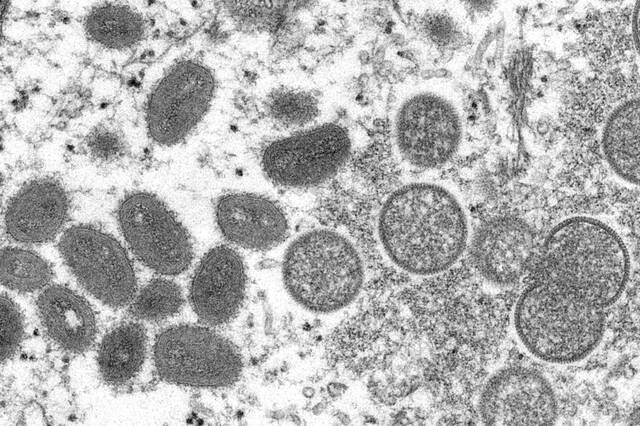While monkeypox has historically been limited to about a half-dozen African nations, the head of the World Health Organization over the weekend declared the spreading viral disease a “public health emergency of international concern.”
The monkeypox outbreak has spread to more than 70 countries and cases now total about 16,800, according to the Centers for Disease Control and Prevention. About 3,000 cases have been confirmed in the United States so far, including at least 55 cases in Pennsylvania.
Here are five things to know about where the monkeypox outbreaks stand, with Pittsburgh-based infectious disease expert Dr. Amesh Adalja weighing in on what the future might hold and how worried people should be.
What is monkeypox?
Part of the orthopoxvirus family, monkeypox is similar to smallpox but not as transmissible or fatal, according to the CDC.
Smallpox was eradicated four decades ago via global vaccination efforts.
Anyone can get monkeypox, and it is spread through contact with a rash, scabs, lesions or body fluids of someone who has monkeypox. The infection can also be spread through prolonged personal contact or through contact with the clothing or linens of someone who is infected.
Symptoms can include fever, headache, aches, swollen lymph nodes, chills, exhaustion and developing a rash that can look like pimples or blisters.
‘A global emergency’
WHO Director-General Tedros Adhanom Ghebreyesus over the weekend declared monkeypox a “public health emergency of international concern.”
“We have an outbreak that has spread around the world rapidly through new modes of transmission about which we understand too little and which meets the criteria in the international health regulations,” Tedros said.
Adalja said declaring a public health emergency of international concern, or PHEIC, will “focus the world’s attention on putting in place the response measures to contain spread. Everyone knew what actions were required, this just galvanizes it.”
A global emergency is WHO’s highest level of alert.
Does that change how we should view the virus?
“Not every infectious agent has pandemic potential and not every infectious disease emergency has to be a pandemic to warrant action,” Adalja said.
“I do not believe any orthopoxvirus family member has pandemic potential. PHEICs have been declared for other infectious diseases such as Ebola, polio and Zika, which underscore the purpose of directing action versus a change in the risk to the general population,” he added.
What preventative measures or treatments are out there?
There is no vaccine specifically targeting monkeypox, according to the CDC, but vaccines and treatments developed against smallpox can help prevent infections.
“Vaccine and antiviral treatment are available,” Adalja said. “However, the vaccine is in short supply compared to the size of the at-risk population, and antiviral ordering is very onerous.”
Indeed, demand for the vaccine overran the appointment system in New York City earlier this month. Officials have said supplies run out almost as soon as they arrive.
The United States has two types of stockpiled vaccines, known as JYNNEOS and ACAM2000. The Department of Health and Human Services tracks the distribution of the JYNNEOS vaccines. As of last week, the only allocations in Pennsylvania have gone to the Philadelphia area.
What is the state of the outbreak in Allegheny County?
As of July 22, the most recent day for which information is available, there were 12 confirmed cases of monkeypox in Allegheny County. The first case was confirmed in a county resident on July 1.
The county health department said officials are still developing a plan to expand vaccine access as it becomes available. The county vaccine clinic offers the JYNNEOS vaccine to those who meet a certain set of criteria, and eligibility is determined on a case-by-case basis.
Free testing is available at the department’s public health clinic via either appointment of walk-in visit.








